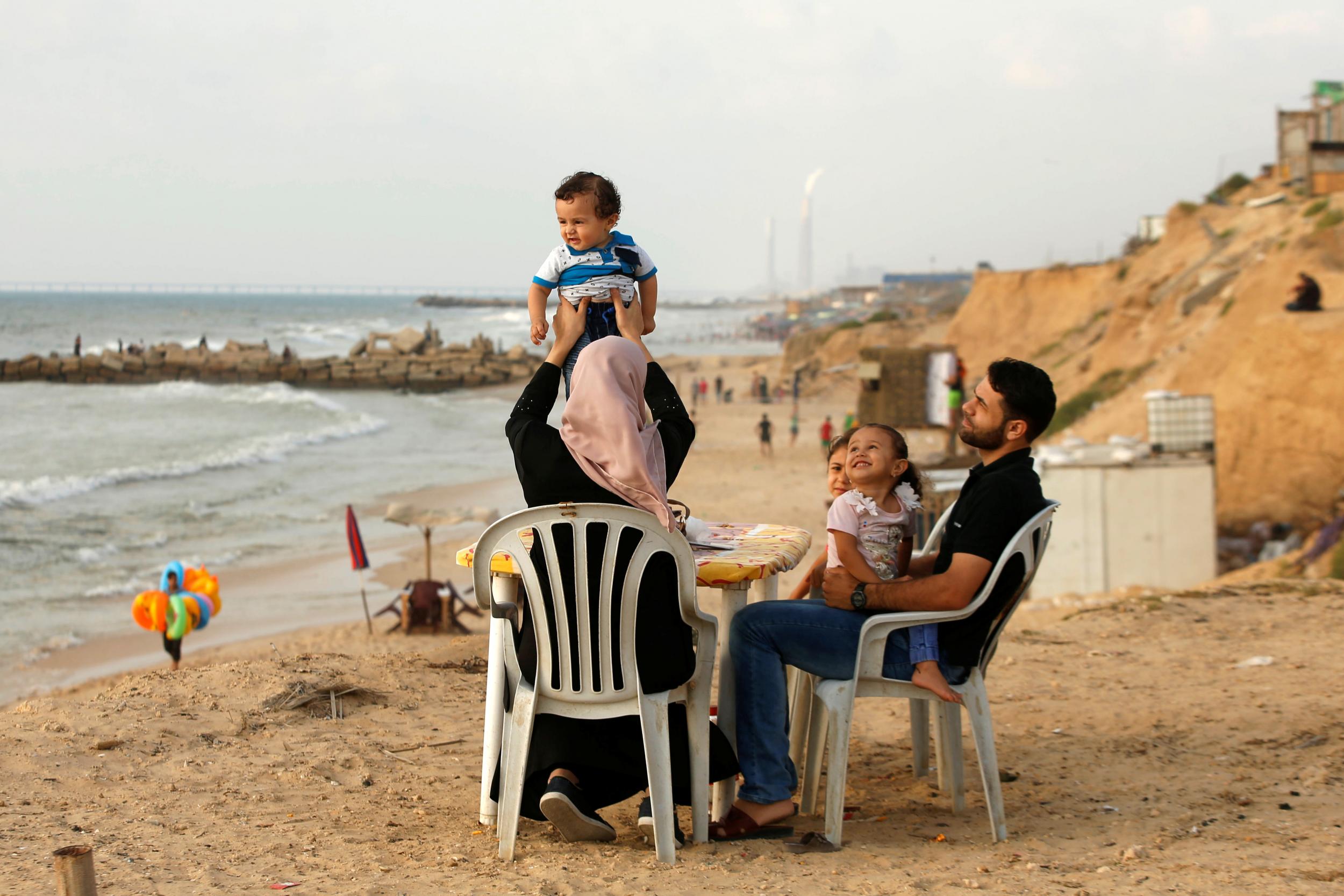Palestinian boy dies after ingesting poison at Gaza's increasingly polluted beaches
More than 110 million litres of sewage is spilling into Gaza’s waters a day thanks to the coastal enclave’s electricity crisis

Your support helps us to tell the story
From reproductive rights to climate change to Big Tech, The Independent is on the ground when the story is developing. Whether it's investigating the financials of Elon Musk's pro-Trump PAC or producing our latest documentary, 'The A Word', which shines a light on the American women fighting for reproductive rights, we know how important it is to parse out the facts from the messaging.
At such a critical moment in US history, we need reporters on the ground. Your donation allows us to keep sending journalists to speak to both sides of the story.
The Independent is trusted by Americans across the entire political spectrum. And unlike many other quality news outlets, we choose not to lock Americans out of our reporting and analysis with paywalls. We believe quality journalism should be available to everyone, paid for by those who can afford it.
Your support makes all the difference.A five-year-old Gazan boy has died after swimming in seawater contaminated by the raw and minimally-treated sewage that is flowing into the Mediterranean thanks to the Gaza Strip’s escalating power crisis.
Mohammad al-Sayis died last month a few days after being admitted to hospital after swimming at the beach in Sheikh Ijlin, a statement from the Gaza Health Ministry said on Sunday.
Mohammad and his siblings had pestered their father to take them to the beach to cool down during the stifling Middle Eastern summer - the only respite for many of Gaza’s two million inhabitants, who are dealing with a burgeoning water and electricity crisis.
“It’s hot and humid and there is no power, water or fans in the house,” Mohammed’s father Ahmad told local media. “The sea is our only outlet.”
Mohammed died from poison ingested during his swim, the health ministry said. His brothers were also hospitalised, but recovered from their illnesses.
The little boy’s death has drawn more attention to the deteriorating living conditions in the Gaza Strip; dozens of people have been hospitalised in recent months after swimming off the increasingly polluted coastline.
While Palestinians have been told for years that swimming in the seas off Gaza is not safe - and power shortages have been a fact of life since militant organisation Hamas took over the area a decade ago - in recent months the situation has reached crisis levels.
The West Bank’s rival Palestinian Authority (PA) has hiked fuel delivery tariffs for Gaza’s only power plant since April in an effort to weaken Hamas’ grip on the coastal enclave, meaning that at times the Strip only has three hours of electricity a day.
Hospitals have warned the blackouts endanger patients’ lives, and the sewage treatment system has broken down, pumping 110 million litres a day of raw waste into the sea and polluting two thirds of the coastline, according to the UN.
Since many households rely on electric pumps for their water, millions have difficulty washing, cooking and doing laundry.
Gaza’s only aquifer and three desalination plants are offline, meaning that 96 per cent of the region’s water is unsafe to drink or wash in.
A July report from the UN found that 10 years into Israeli land and sea blockades, three short wars with Israel and the slow PA squeeze, the Gaza Strip is now “unlivable”, and de-developing quicker than expected.
“Of all the issues we deal with – the peace process, Palestinian institution building, the region – [the electricity crisis] is the one issue that keeps me up at night,” Nickolay Mladenov, the UN’s special coordinator for the Middle East Peace Process, said recently.
“The effects of the crisis are devastating,” he added. “And all of this, at the end of the day, will come back to Israel’s doorstep.”
Join our commenting forum
Join thought-provoking conversations, follow other Independent readers and see their replies
Comments